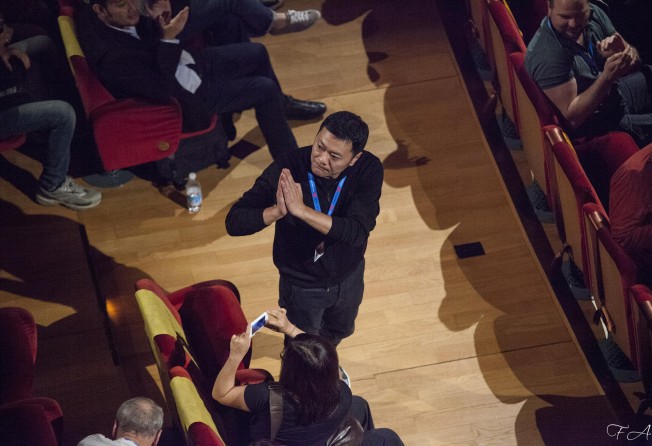Postcard: Beijing

You get the distinct impression that if it were not for the sake of his students, mainland director Wang Jing could have done without the tribulations of the past 12 months.
Wang splits his time between making his own movies and working as dean of the cinematography department at the Beijing Film Academy, where he is helping frame the future for the next generation of his country's filmmakers. In October, his critically acclaimed drama Feng Shui was invited to compete for the main award at the Tokyo International Film Festival - right when the ongoing dispute between China and Japan over the Diaoyu Islands had made one its regular reappearances - and the director found himself at the centre of a media storm.
"We were happy to be invited to Tokyo, but the political situation changed things," he recalls. "We knew if we had gone to the festival, the media would have made something of this, and it might have affected how the film was received [on the mainland], who went to see it and who wanted to distribute it. It created a lot of arguments among everyone involved in the film."
Feng Shui eventually found a theatrical release across the mainland, but despite its universal acclaim by the critics, audiences were small. (It picked up the Best Actress award for Yan Bingyan at the Beijing International Film Festival in April, and was also screened the same month at the Far East Film Festival in Udine, Italy.) It was audience interest shown in his film and his career at the Udine festival that made Wang reflect on the difficulties facing smaller, independent filmmakers on the mainland, and on his role as a mentor to young Chinese directors.
"If you ask my students, most will say they want to make blockbusters, big commercial movies, as that is where the money is today in China," he says. "They all want to be box-office heroes, but I am trying to tell them that there are other topics to tackle and stories that are more real. Movies can be fun, but there should also be films that make you think."
Feng Shui certainly does that, taking an often brutally honest look at the life of a driven woman who is determined - regardless of personal and emotional sacrifices - to ensure that her son has all the opportunities in life that she missed out on. Wang says he wanted to avoid depicting a Chinese woman who was not in charge of her own fate. "That is the usual thing in Chinese films, so I wanted to show a woman who could fight back," he says. "I think it is important that there are people in China making these films who present something that feels real."
The media was given a preview of Wang's latest film - which was tentatively given the English title The Infections and the Cures - at the Shanghai International Film Festival earlier this month. The historical drama traces the story of Wu Youke (1582-1652), a Ming dynasty doctor who was among the first to use inoculation to treat diseases.
"What I want people to realise through this film is that while people can make money and can achieve things like wealth, these material things pass. There are things people achieve that matter - like medicine - so I wanted to highlight this and, I hope, inspire people to think again," Wang says.
Again, his production was well received by the festival audience and the critics in Shanghai, but he has struggled to secure release dates. After initially hoping it might hit cinemas this summer, The Infections and the Cures is now set for an October release on the mainland, while negotiations are continuing for Hong Kong and Taiwan.
"It is just the way the market is in China today," says Wang. "You have to work to make an independent film, and then work really hard to find a way to get it into cinemas. It can be tough for smaller directors ... because everything is focused on the big studios, the big international films and the blockbusters. But we have to encourage the young directors, to show them the way. It might be hard sometimes, but it is worth the effort."